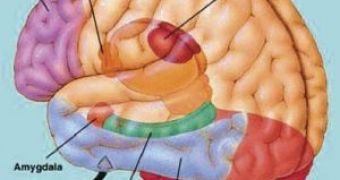A new research conducted by a medical team at the University of California found that boys and men that suffer from autism have fewer neurons in the amygdala area of the brain than healthy men.
Autism is a disorder of brain functioning that appears early in life, generally before the age of three. Autistic individuals have problems with learning capacity, social interaction, communication, imagination and behavior. Autistic traits persist into adulthood, but vary in severity. Some of the adults with autism become rather normal, going to college and living on their own, while others never develop the skills of daily living. The origin or the cause that leads to this neurological disorder is still unknown.
Cynthia Mills Schumann of the scientific team that carried out the research stated: "One possibility is that there are always fewer neurons in the amygdala of people with autism. Another possibility is that a degenerative process occurs later in life and leads to neuron loss. More studies are needed to refine our findings."
However, the new study showed that in autistic persons there are a considerably small number of neurological cells in the area of the brain concerned with the autonomic responses associated with fear, emotional responses, sexual arousal and hormonal secretions. The amygdala region is located in the temporal lobe of the brain, working through the hypothalamus and adjacent to the hippocampus.
When injured, the amygdala may lead to changes in the aggressive and emotional behavior. Which leads to a close link between the less than normal number of neurons in this area of the brain and autism - as the amygdala is responsible for the emotional and other responses in the brain, crucial for the social learning that autistic persons lack.
While we have known that autism is a developmental brain disorder, where, how and when the autistic brain develops abnormally has been a mystery. This new finding is important because it demonstrates that the structure of the amygdala is abnormal in autism. Along with other findings on the abnormal function of the amygdala, research is beginning to narrow the search for the brain basis of autism," Dr. Thomas Insel, director of the National Institute of Mental Health which funded the study, declared.

 14 DAY TRIAL //
14 DAY TRIAL //